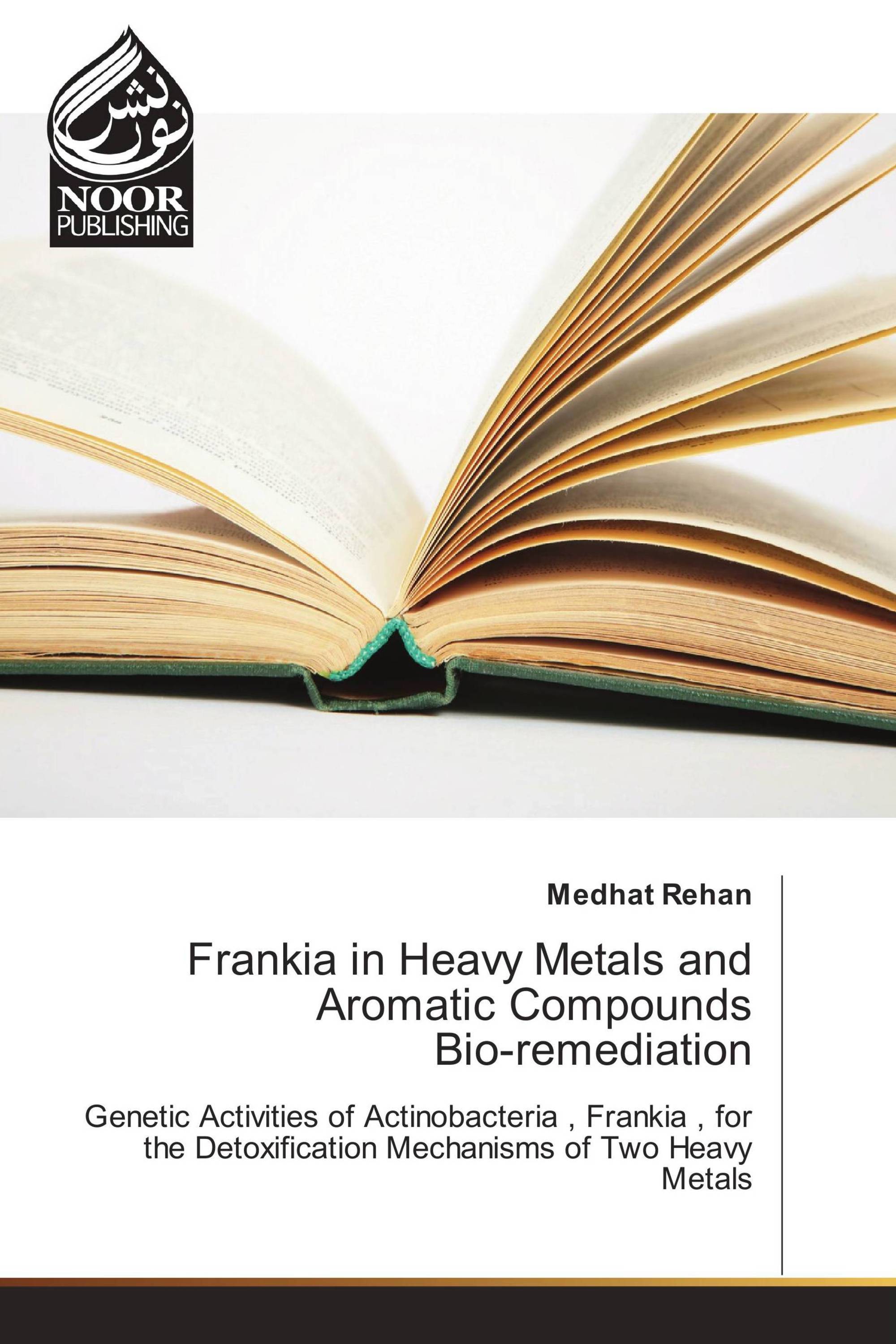Frankia in Heavy Metals and Aromatic Compounds Bio-remediation
Genetic Activities of Actinobacteria , Frankia , for the Detoxification Mechanisms of Two Heavy Metals
Noor Publishing ( 2016-10-14 )
€ 55,90
Frankia are filamentous and gram-positive bacteria. Frankia isolates are tolerant to diverse group of metals and metalloids (Richards et al., 2002). However, little is known about the mechanisms involved. Three finished Frankia genomes (CcI3, NCBI RefSeq: NC_007777 (Zhang et al., 1984), ACN14a, NCBI RefSeq: NC_008278 (Normand and Lalonde, 1982) and EuI1c, (NCBI RefSeq: NC_014666 (Baker et al., 1980)) were initially tested against different kinds of heavy metals and aromatic compound pollutants. These strains were chosen because their genome sequences were available at the beginning of this study. These Frankia strains were tested against seven heavy metals (Zn⁺², Pb⁺², Cd⁺², As⁺², Co⁺², Se²O3, and Cu⁺²) in addition to their ability to degrade two persistent aromatic pollutants (Biphenyl and Polychlorinated Biphenyl) and two organophosphorus insecticides (Parathion and EPN). My working hypothesis is that Frankia can resist many of heavy metals through sequestration or reduction these metals to less toxic or nontoxic metals To achieve this goal, different approaches were used.
Book Details: |
|
|
ISBN-13: |
978-3-330-80055-7 |
|
ISBN-10: |
3330800550 |
|
EAN: |
9783330800557 |
|
Book language: |
English |
|
By (author) : |
Medhat Rehan |
|
Number of pages: |
136 |
|
Published on: |
2016-10-14 |
|
Category: |
Genetics |
